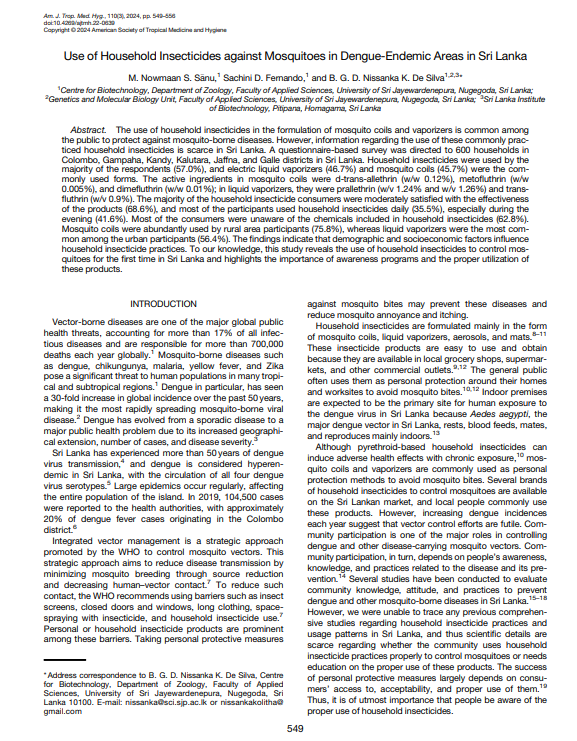The use of household insecticides in the formulation of mosquito coils and vaporizers is common among the public to protect against mosquito-borne diseases. However, information regarding the use of these commonly practiced household insecticides is scarce in Sri Lanka. A questionnaire-based survey was directed to 600 households in Colombo, Gampaha, Kandy, Kalutara, Jaffna, and Galle districts in Sri Lanka. Household insecticides were used by the majority of the respondents (57.0%), and electric liquid vaporizers (46.7%) and mosquito coils (45.7%) were the commonly used forms. The active ingredients in mosquito coils were d-trans-allethrin (w/w 0.12%), metofluthrin (w/w 0.005%), and dimefluthrin (w/w 0.01%); in liquid vaporizers, they were prallethrin (w/v 1.24% and w/v 1.26%) and transfluthrin (w/v 0.9%). The majority of the household insecticide consumers were moderately satisfied with the effectiveness of the products (68.6%), and most of the participants used household insecticides daily (35.5%), especially during the evening (41.6%). Most of the consumers were unaware of the chemicals included in household insecticides (62.8%). Mosquito coils were abundantly used by rural area participants (75.8%), whereas liquid vaporizers were the most common among the urban participants (56.4%). The findings indicate that demographic and socioeconomic factors influence household insecticide practices. To our knowledge, this study reveals the use of household insecticides to control mosquitoes for the first time in Sri Lanka and highlights the importance of awareness programs and the proper utilization of these products.


